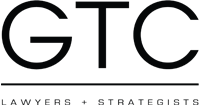March 2019
On March 26, 2019, the European Parliament voted 348 to 274 (with 36 abstaining) to pass the European Union Directive on Copyright in the Digital Single Market (the “Directive”).
Among the Directive’s broad regulations are two key requirements that have garnered significant attention: 1) that news aggregators (such as Google News) must now pay licensing fees to use content (Article 15) and 2) that large platforms (such as YouTube) must monitor content generated by their users for copyright infringement (Article 17).
The proposal had been fiercely opposed by parties concerned about potential censorship in the future and tech companies which warned that they would need to build new (and expensive) content filters and stop linking to publications. However, on the other side, artists and media companies supported these reforms as a much-needed update to copyright protections in the digital era.
Article 15
As the title of Article 15 (previously 11) suggests (“Protection of press publications concerning digital uses”), this section puts in place greater protections for publishers when their content is used online and will require that websites such as news aggregator sites pay publishers of press publications for using excerpts of their articles.
The payment obligation will last for 2 years from the date of first publication of the content and does not apply to hyperlinks or “individual words or very short extracts of a press publication.” In other words, news aggregators such as Google News would not be prohibited from hyperlinking to the original article or providing short extracts of the published work.
Article 17
Article 17 (previously 13, titled “Use of Protected Content by Online Content Sharing Service Providers”) provides that large content-sharing service provider platforms, such as YouTube, will be liable for user-generated content and imposes newfound responsibility on platforms to affirmatively obtain the right holders’ authorization.
If no such authorization is obtained, the platforms will be liable for content uploaded without permission unless they can demonstrate they made best efforts to obtain authorization and to make the works unavailable, and that they acted expeditiously, upon receiving notice, to disable access to the protected work and made best efforts to prevent future uploads.
The Directive expressly limits the applicability of Article 17 to larger platforms providing that the new requirements do not apply to websites that have been active for less than 3 years, have an annual turnover below 10 million Euro or have fewer than 5 million monthly visitors. Article 17 also excludes from the scope of the Directive entities such as not-for-profit educational and scientific repositories, open source software developing and sharing platforms, not-for-profit online encyclopedias and certain cloud services that allow users to upload content for their own use.
Unlike the current online infringement regime in the U.S. which places responsibility on the copyright owners to actively police for infringement of their works, this new EU Directive places the obligation on large content hosts.
This Directive is expected to be endorsed by majority of EU countries at the European Council in April 2019, at which point member states will have 24 months to implement the new rules.
